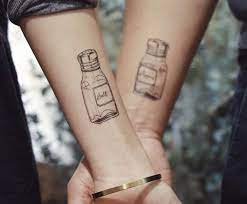
Gradual Fading of Tattoos
Salt can help fade tattoos over time, but multiple sessions may be needed to see noticeable results. Keep in mind that the tattoo will not completely disappear, only lighten.
Potential Risks of Salt Removal
Using salt for tattoo removal is a widely recommended technique, but it often fails and can cause skin damage, infections, and extreme pain. Applying lemon juice directly to tattoos is not advisable, as it may irritate wounds and not effectively fade tattoo pigments.
Alternative Methods
Dermabrasion, another tattoo removal method, involves scraping the skin with an abrasive device. However, this procedure can be expensive, uncomfortable, and may leave scars. Laser removal is considered more effective and safer than other alternatives.
Tattoo Regret
Many people regret their tattoos and seek ways to remove them. Rubbing salt and lemon onto the skin is a popular home remedy, but it should be done cautiously to avoid damaging the tattoo or causing infections.
The Limitations of Salt
Salt is an exfoliant but cannot effectively remove tattoo ink from the dermis. Soaking a new tattoo in salt water can cause burns and open wounds. Laser and dermabrasion treatments are more effective alternatives but can be costly and require multiple sessions.
Considerations for Tattoo Removal
Lemon juice can lighten superficial tattoos on the epidermis, but it may not suit individuals on blood-thinning medications. Tattoo removal creams and ointments may also cause irritation and scarring. Seeking professional guidance is recommended for safe and effective tattoo removal.
Important Note
Salt is an inexpensive household item but cannot permanently remove tattoo ink from the dermis. Professional guidance is crucial to avoid permanent skin damage and infection.

